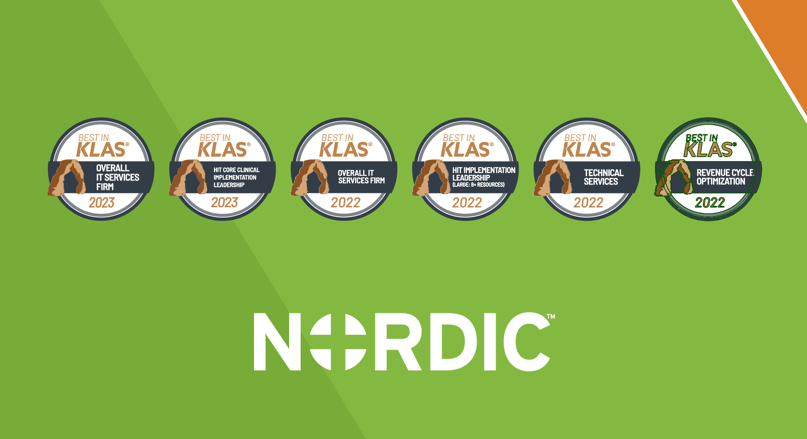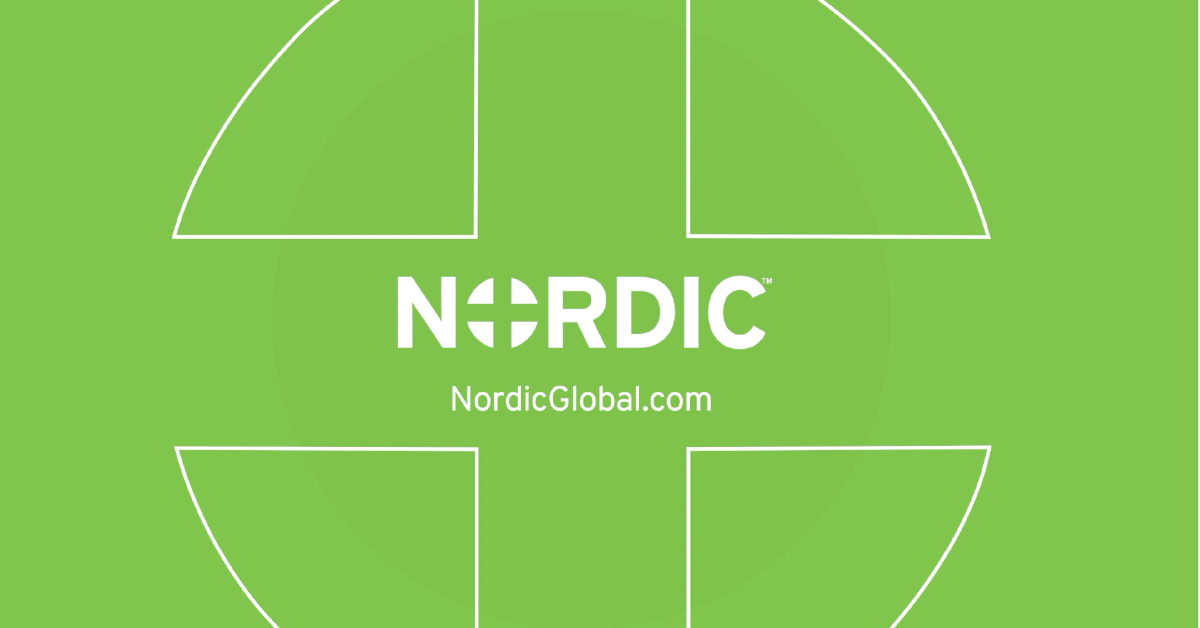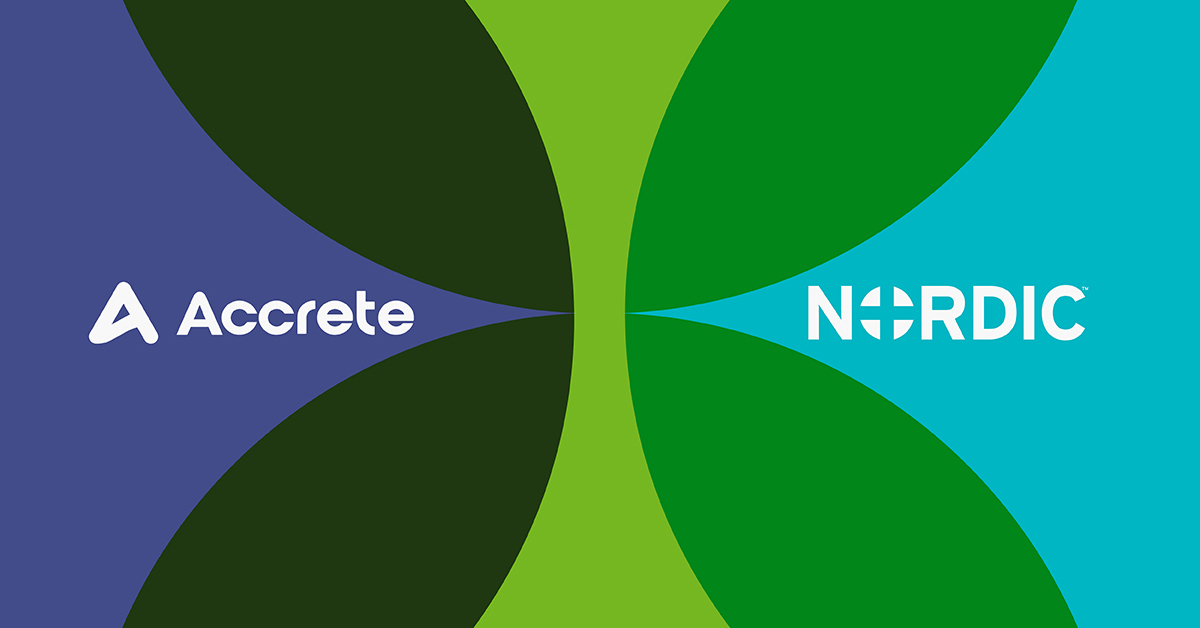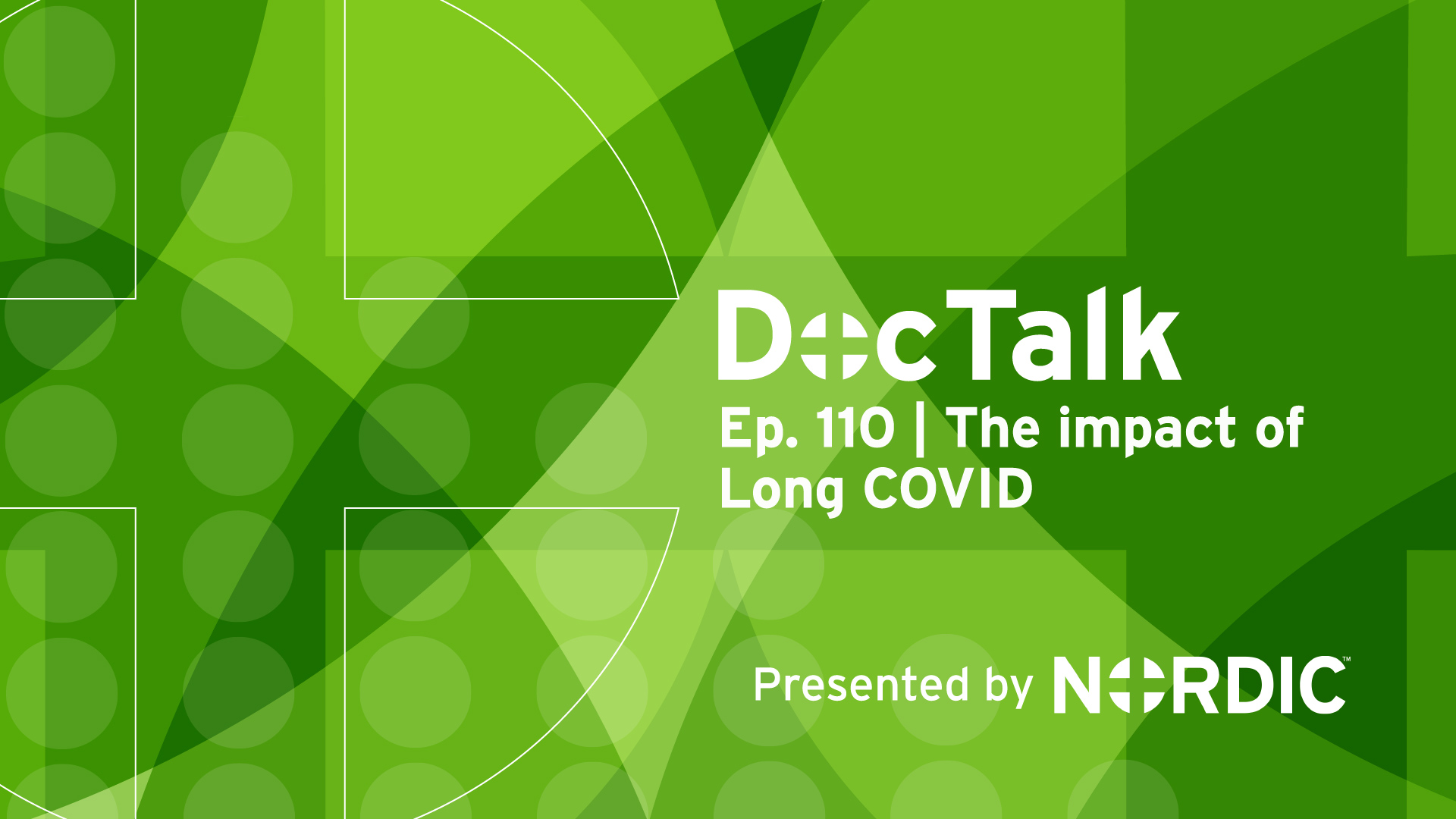"Be kind," Ian MacLaren reportedly wrote, "for everyone you meet is fighting a hard battle." This is definitely true in a stressful or frustrating work environment, like the one created by EHR transition or implementation. Senior Consultant Sheri Long says if you can strive to find the "human moments" in a large EHR implementation, you'll feel a lot more satisfied at the end of the day.
Here, Sheri chats with Advisory Services Practice Director Josh Kalscheur about her decades of work in clinical informatics and what she's learned about patient care, providers, and consultants from 21 Epic big bangs. Listen as she shares how to master the role of "physician whisperer" and why the patient should always be front-and-center when you think about IT.
If you would prefer to read rather than watch, the transcript of their conversation is below.
Transcript
Josh Kalscheur: Hi. This is Josh Kalscheur. Practice Director over Advisory Services here at Nordic. We're here today to talk a little bit about our Advisory Services and specifically wanted to spend some time with Sheri Long, one of our Advisory Services consultants out in the field. I wanted to spend some time just chatting a little bit about your background, and what brought you to where you are in the industry today. I think that's great information for folks who are interested in potentially becoming a Nordic consultant, and also for our partners, who are out there looking for your level of skill and expertise.
Sheri: Sure.
Josh: I wonder if you could share a little bit about your background.
Sheri: Yeah. I'd love to say I planned it, but I kind of fell backwards into clinical informatics. I'm a nurse, and I started off in trauma. We moved to an area that didn't really have a lot of that. I tried a lot of the departments, all the of the departments, and ended up in clinical informatics, by default. What I realized was that all of that experience really helped with what I'm doing, so I'm staying with clinical informatics, and I love it. I've been doing it for about 23 years.
Josh: Awesome. I'm interested to know from your perspective specifically, Sheri: Clinical informatics is a term that I hear quite a bit, as I'm talking to both our clients as well as consultants and candidates who are interested in working with us. I feel like there's a real wide definition for what that is across regions.
Sheri: Yes.
Josh: In your experience, how would you categorize clinical informatics, and we can talk a little bit more about how you express that in the work that you do.
Sheri: Well, clinical informatics, like you said, is a wide topic. It's about really understanding clinical processes, throughput, and the hospital and ambulatory setting. Using the IT aspect of it and having a knowledge of the integration of the system and how to use that within those workflows.
However, on the spectrum of that, there are some that have a certification, and they have a clinical informatics title, but you really wanna make sure that there's an experience level that goes along with that to where you really have lived those workflows, or you've really understood them from a build perspective.
When I have personally have talked to clinical informatics, the first thing I wanna know is, "What have you done, and how did you get to where you are?" It really helps define how much they really do know.
Josh: And I would say that is one thing that I really value in my conversations with you and certainly, very much look for in regards to folks, who operate at your level, which is that combination of true to life expertise in the filed, doing the work. And then also, that combination of a background in IT, and having been through it, a number of different Epic implementations and projects, to kind of bring that to bear.
Can you talk a little bit about the breadth of your experience is Epic? Just a quick overview of the different types of projects that you've done in the Epic space.
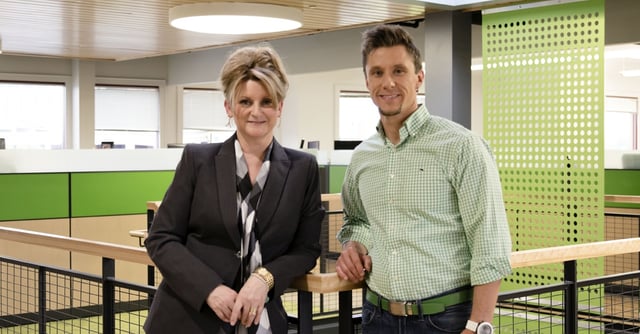
Sheri: Sure. In 30 days, I'll have my 21st Epic big bang install, which is basically everything revenue and clinical going up together. Now, along the way we've had a lot of projects with some of those big bang installations that they want to add an entire hospital to their system or they want to add a whole oncology clinic. It's like a mini build. Sometimes they call them optimizations, because they're optimizing Epic at their site. Other times they call 'em, you know, additional purchases that are additional installations, but I've probably done and in variations, some of revenue first, and then clinical on top, and vice a versa. Probably an additional two dozen of those, as well as optimizing work flows when Epic brings new code, or has new products that you wanna integrate. That's another type of a project that takes the same kind of perspective as the bigger ones, so I should keep counting those too.
Josh: Keep a tally on your wall.
Sheri: Yeah. I need to, of my "minis."
Josh: One thing I really appreciate in my communication with you is really the level of excellence that you, not only expect of yourself clearly, but of the folks that you work with as well. One thing that I always find very interesting is how you refer to the teams you work with. When you are working with analysts for example, you are expecting individuals who can analyze, right? Who can provide expertise in regards to their experience, how it integrates with the system and workflow, and users, and not just an understanding of how to fix a widget in the Epic system.
Sheri: True.
Josh: I really appreciate that perspective. I wonder if you can share a little bit about how you feel like that benefits a team, and benefits an organization to have that perspective. It's certainly one that we share at Nordic.
Sheri: A lot of analogies that I make are about healthcare. For me, it's like a code. When you run a code on a patient, every person that comes to the code is expert in their area. They stay in their lane. They contribute equally, and they expect and assume everyone else is doing the same thing, and collaboratively it's extremely successful.
That's a model that works for saving lives. In an Epic implementation, I kind of think of it the same way. You know, Epic is absolutely expert on their product. They come there with a certain amount of knowledge base, beyond themselves. And then you need operations. You need the site to be able to really understand their demographics, their culture, the goals that they have, the way that they want to impact the healthcare in their community.
And then you need people on the project that understand both languages, and that understand how I can take some of the brilliant input that Epic gives us, and explain it to a healthcare provider, whose focus is somewhere else, but we still need them to be fully engaged. It's almost like an interpreter. That role is very clear. For me, I kind of see it like that. It's one of the things where the analysts need to understand that dynamic. They have to fill a role as being able to listen and hear things, when people don't really realize they're saying it, to generate an integrated workflow that works for patients.
Josh: A word that I hear you use often Sheri, and that I feel like as I understand certainly the work you do and your background really kind of frames how you approach a project is from that workflow perspective. I appreciate that a lot. I feel like when I hear you refer to workflow, you're not talking about a document of how a person does a thing. You're talking about the experience of how user interacts both with patients, as well as with the system. Could you dive into that a little bit more?
Sheri: Well, it's really easy when you have so many pieces of a project to get focused on all the pieces, the different areas I mean. What it really boils down to is hospitals sell the bedside care. The gurney side care, the chair side care, the whatever. You really have to keep your eye on that. Everything else will fall into place. I really believe that when you look at things from a team approach, and you understand that everyone has the same goal, but they have a different way of reaching it, that you're able to come up with a site specific way of going from how do we get this thing moving along the installation plan that Epic provides us, and we end up with something that a doctor, or a nurse, or the lab, or anyone else that supports patient care can say, "This makes sense when I'm right here and I'm taking care of you." For me it does have a very specific clinical piece and I think everyone should keep that in mind, even if you're in the revenue cycle side. You're charging for that care.
Josh: For sure. I can just hear that kind of passion in your voice.
Sheri: It's the nurse in me.
Josh: As you're talking about it. I feel like that resonates I'm sure with providers, and clinicians, and nurses that you are working with on these projects, and so I can certainly sense that.
Sheri: Yeah. They feel very, very important. Everything kind of starts with them, and move out. I think that it's a type of an attitude, especially when you're dealing with the providers, who generate revenue, and who help all the rest of the system do what they need to do. When everybody feels good that they're accounted for in this process, it shows. They're involved, and they're excited, and they wanna contribute, and the patients feel it. For me, that's what I look at. I know people have all kind of different ways to monitor, you know, KPIs and everything else. I'm looking at the patient and seeing how they're happy on go-live day.
Josh: For sure.
Sheri: Yeah.
Josh: I would be interested to know, Sheri, knowing the breadth of your experience, and the number of projects that you've been on. Could you share maybe like, what you feel like has been one of your greatest accomplishments on one of these Epic projects, or one has been one of those moments where you've really felt like you've just kind of hit it and it's working really well?
Sheri: Yeah. It started off as being one of my most frustrating moments. We had a physician, who was a cardiac surgeon, and he had a very big practice. He had a lot of very high-profile patients. In the middle of go-live, third day, he just had a fit. They called me to come talk to him. I thought, "Oh no."
I was trying to figure out how to make this person happy and a couple of things I tried really didn't work that well, and I thought, "This is not gonna be OK." He was really talking about the entire experience. And then I just say down and said, "Well, just show me." He took the time after he calmed down a little bit, and we worked through something that was so small, and it had nothing to do with the system. It was about how he felt about utilizing the system. When we finally worked through that one little part and came up with a tiny solution, he was so thankful. His whole attitude changed. The best part about it, and the reason I thought it was a success is that a lot of people were afraid of him, including myself, and now he's a really good friend. I think that was a success. He ended up being very positive and a leader in that particular group, so I was happy for the turnaround.
Josh: For sure. It's amazing how those small moments can sometimes have the largest impact.
Sheri: Yeah. It's always something unique. In every go-live, there's something like that that happens. A human moment in the midst of all this technology, that really makes it real. I like those times.
Josh: I can certainly sense, from you, and obviously in the number of conversations that we've had you're a very relational person. Those relationships matter a lot. That very much is how we define ourselves here at Nordic. Very much a relationship-based organization. I'd be interested to know, from you Sheri, what you see in Nordic. What has been your experience with Nordic? What you see in us that either reflects who you are, or that you feel kind of creates that collaborative relationship.
Sheri: Well, you know, I've been involved with a lot of different consulting companies and different companies that provide all kinds of services around this particular type of industry. They all come in. They get what they need and they leave.
My first experience with Nordic was I met a person that was a leader in the company incidentally at a UGM, so personable, and really wasn't on the sell. It was like interested in just people in general. It made you want to talk. That led me to inquire about hiring a resource, when I was at a particular place. I was the director for orders and lab. I hired that resource. The interesting thing is that every experience I had from meeting one of the leaders to actually employing one of the consultant, they all act the same way. Its like, "We're glad to be here. What's going on? Oh yeah, we'll work with Epic, but how are you doing?"
I thought that was really odd. At first, it kind of threw me off a little bit. But then, when I had the opportunity to come to work for Nordic ... Unfortunately, right as I was placed at the site, my younger sister passed away, about, two, I think two weeks later. I was brand new to this company, and everybody jumped in to say, "What can we do to help you?" Nobody was upset that I was at a new client. They didn't care what Nordic looked like. It was just the ... going back to what we said earlier, it was the part that absolutely matters, and that's why I think it's probably the best place I've ever worked, so ...
Josh: I really appreciate hearing that. Well this has been a wonderful chat Sheri. I really appreciate your time.
Sheri: Thank you for having me. I enjoyed it.
